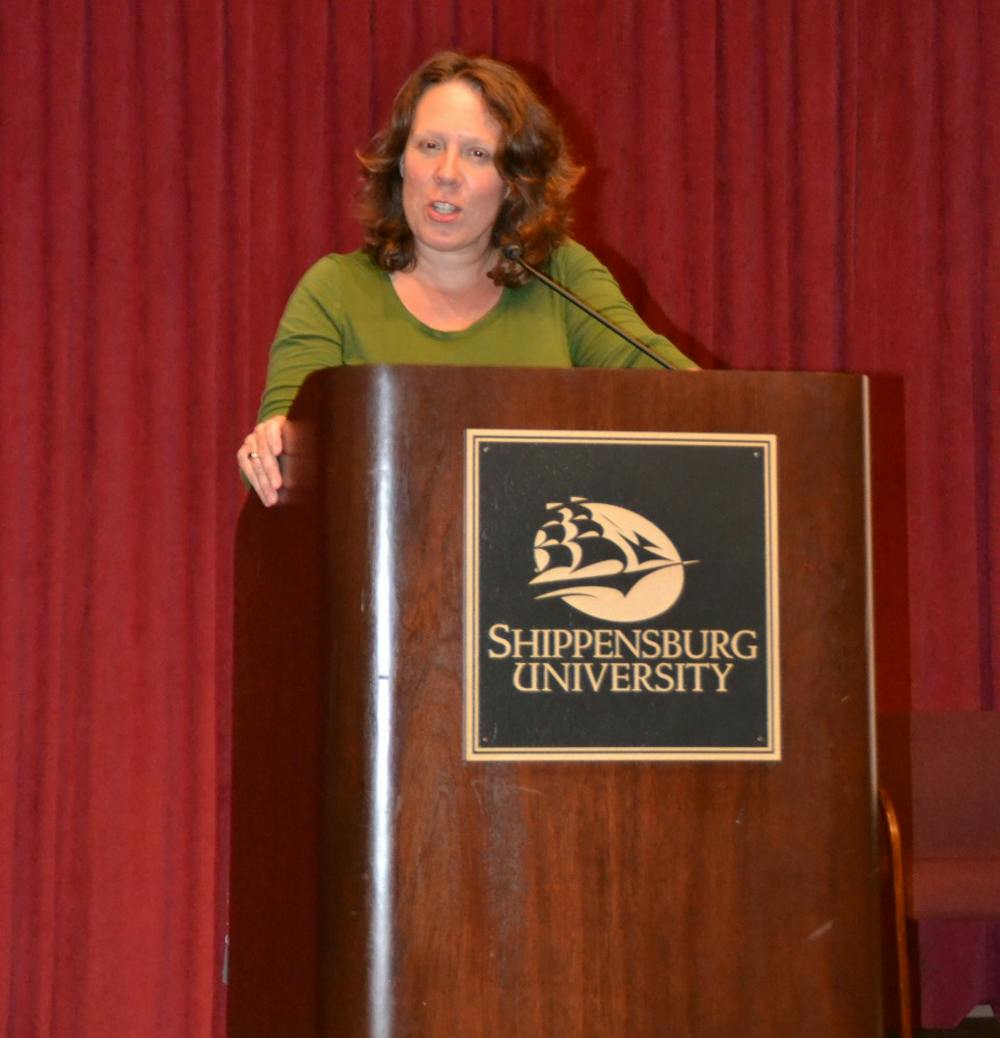Kim Nielsen, disability historian and acclaimed author of “A Disability History of the United States” and “The Radical Lives of Helen Keller,” delivered a speech at Shippensburg University on Wednesday, Oct. 2.
In her speech, Nielsen shed light on the history of the treatment of the disabled in America. First, she exposed the hidden bias that many have regarding disability, and defined the term “ableist” as someone who attributes less value to the disabled.
Over the course of history, ableism has declined, but there are still shadows of it in our society. Nielsen referenced the fact that until 1973, American universities had no obligation to accept disabled students.
She also brought attention to many unintentional ableist phrases which still circulate, such as “stand on your own two feet” and “speak for yourself.” Even phrases such as “that’s lame” have forgotten roots as disability smears.
Nielsen also mentioned that “ableism” has been a part of our country since its founding.
James Otis, famous for his speech about “No taxation without representation,” also disqualified “idiots and madmen” from enjoying property rights. Ironically, Otis was declared an idiot later in life and had his property taken away under the force of those same discriminatory laws which he helped create.
Historically, our country has been a haven for immigrants. For disabled immigrants, however, we learn a different story. Many disabled immigrants were simply turned away at the gates, Nielsen claims.
The speech was given to an auditorium packed with SU students from a variety of majors, all of whom were scribbling feverishly in notebooks after every point made by Nielsen.
“I find it interesting that in lower education, minorities and the disabled are over-represented, yet in higher education, they remain under-represented,” Rebecca Mandell, a Spanish education major said.
Mallery Callen, an art education major, personally connected with Nielsen’s message.
“Throughout my education, I have struggled with dyslexia, and I never realized the significance of the help I was given. I’m able to accomplish so much because of all the rights that we have now, compared to the rights of those 30 years ago. Everyone needs to learn about this, not just education majors.”
Students interested in studying disabilities in further depth can now minor in disabilities studies. The 18-credit supplement equips students to work with the disabled and explores important ideology relating to disability.




The Slate welcomes thoughtful discussion on all of our stories, but please keep comments civil and on-topic. Read our full guidelines here.